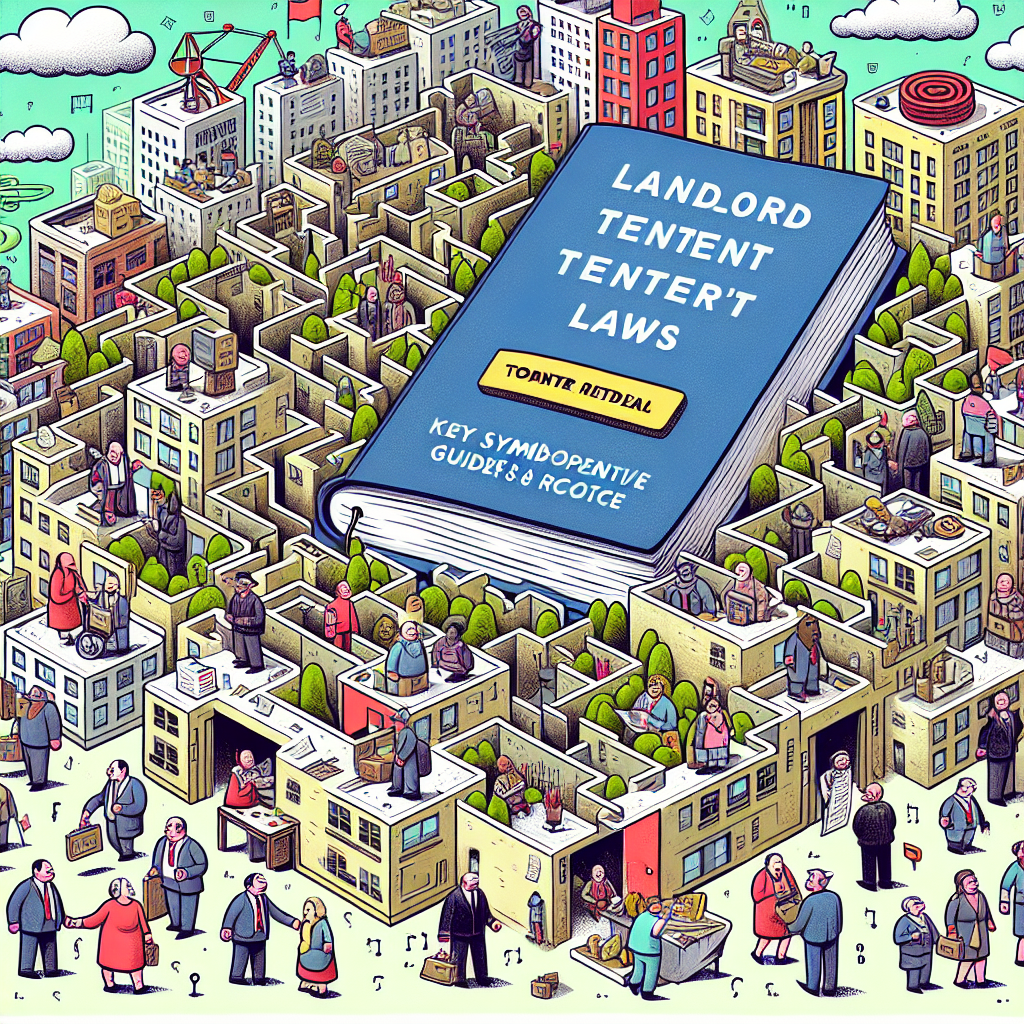 Understanding and navigating Modesto’s landlord-tenant laws is essential for protecting renters’ rights. This guide offers practical advice to help tenants in Modesto understand their legal rights and responsibilities, ensuring a smoother rental experience.
Understanding and navigating Modesto’s landlord-tenant laws is essential for protecting renters’ rights. This guide offers practical advice to help tenants in Modesto understand their legal rights and responsibilities, ensuring a smoother rental experience.Understand the Basics of the Rental Agreement
The rental agreement or lease is the fundamental document governing the relationship between you and your landlord. Ensure that the agreement is clear and outlines essential aspects such as rent amount, payment due dates, the duration of the lease, and policies regarding security deposits and repairs. Always read the lease carefully before signing it, and don't hesitate to ask questions or request changes if any clause seems unfair or unclear.
Know Your Rights Regarding Security Deposits
California state law caps the security deposit at two months' rent for unfurnished properties and three months for furnished units. After you vacate the property, the landlord must return your deposit within 21 days, minus any lawful deductions (such as unpaid rent or repair costs beyond normal wear and tear). Request a pre-move-out inspection to identify potential deductions and address issues before vacating.
Familiarize Yourself with Rent Control Laws
Currently, Modesto does not have its own rent control ordinance; however, California's statewide rent control law (AB 1482) applies. This law restricts annual rent increases to 5% plus inflation, not exceeding 10% total. It applies to most buildings over 15 years old but excludes single-family homes and condos unless owned by a corporate entity. Understand these limitations to ensure your landlord is not overcharging you.
Maintenance and Repairs
Landlords are required to maintain rental units in a habitable condition, compliant with local health and safety standards. This includes keeping plumbing, heating, electrical, and ventilation systems in good working order. If repair issues arise, promptly notify your landlord in writing. Landlords are legally obligated to make necessary repairs in a reasonable timeframe. If they fail to do so, tenants may have the right to repair and deduct from rent or withhold rent until repairs are made.
Understand Anti-Discrimination Laws
Both federal and state laws prohibit discrimination in housing based on race, color, national origin, religion, sex, familial status, or disability. California law expands these protections to include sexual orientation, gender identity, source of income, and more. If you believe you've been discriminated against, file a complaint with the California Department of Fair Employment and Housing (DFEH).
Handle Evictions Properly
In California, landlords can evict tenants for specific reasons: not paying rent, violating lease terms, damaging property, or engaging in illegal activities. They cannot evict you without proper notice—a "pay or quit" notice for nonpayment, for example. Landlords must file an unlawful detainer lawsuit to legally evict you. If you're served with eviction papers, respond promptly to avoid default judgment and consult an attorney for defense options.
Negotiate Disputes Amicably
While knowing your legal rights is crucial, communication with your landlord can often resolve disputes more effectively than legal action. Clearly convey concerns or grievances in writing and suggest potential solutions. Good-faith negotiations might avert misunderstandings and maintain a positive tenant-landlord relationship.
Join or Form Tenant Unions
Tenant unions can be a powerful tool in advocating for tenant rights collectively. They can provide resources, share experiences, and offer support in disputes. Consider joining an existing union or forming one in your building or community to strengthen tenant bargaining power.
Know About Renters’ Insurance
While not legally required in California, renters’ insurance can be invaluable for protecting your personal belongings from damage or theft. Additionally, some policies offer liability coverage if someone is injured on your premises. Shop around to find a policy that meets your needs and budget.
Understand Retaliation Protections
California law protects tenants from landlord retaliation if they exercise their legal rights (e.g., complaining about habitability issues or joining a tenant organization). Landlords cannot raise rent, reduce services, or try to evict tenants as retaliation. If you face such actions after asserting your rights, it may be considered retaliatory.
Stay Informed About Local Ordinances
Though much of the law is state-wide, local ordinances may affect specific tenant rights and responsibilities in Modesto. Keep informed about local regulations or initiatives that may impact housing policies or introduce additional protections.
Utilize Legal Aid Resources
Numerous organizations provide legal aid for renters unable to afford private attorneys. These include Central California Legal Services and other local groups offering assistance with housing issues. Take advantage of these resources if you need legal advice or representation.
By understanding these aspects of Modesto’s landlord-tenant laws and taking proactive measures to protect yourself, you can effectively advocate for your rights as a tenant.

Comments
Post a Comment